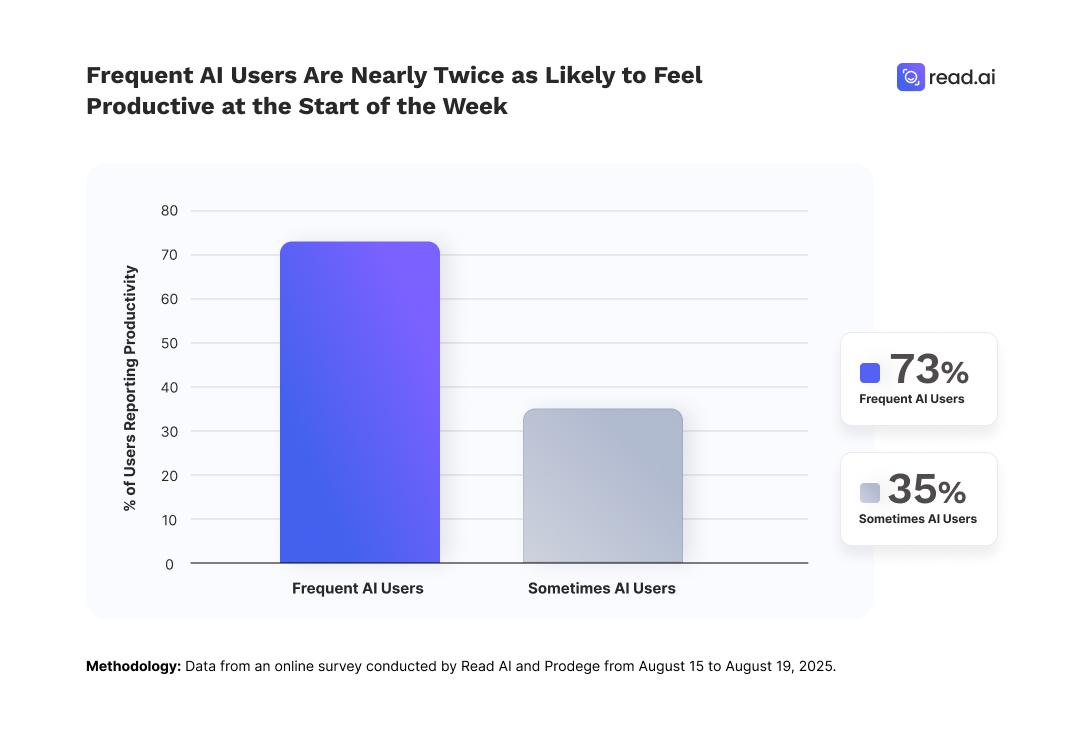
For decades, Mondays have symbolized workplace dread, but new research proves that the tide is turning. A new, comprehensive survey of U.S. workers and an internal analysis of more than 5 million meetings from Read AI reveal how AI is reshaping the rhythm of the modern workweek.
In the past year, Monday blues have lessened as workers who adopt AI start the week with clarity and momentum. AI-empowered teams are nearly 2x more likely to feel productive at the start of the week and 6x more likely to start the week with clarity and focus compared to those without AI support.
The workweek is shifting in measurable ways. Workers begin the week with less stress and anxiety, move collaborative work to the middle of the week by shifting meetings to Tuesday to Thursday, (allowing them to unburden the front and back of the week) and finish strong on Fridays (the day continues to show the highest engagement and positive sentiment in meetings). There is an overall reclaiming of Mondays and a more intentional approach to the workweek, which is further fueled by AI workflows.

This new data proves that AI is more than a productivity catalyst. It’s smoothing out the rough edges of the workweek.
As AI adoption accelerates, it’s also becoming an expectation, and employees are hungry for AI to continue supporting the new rhythm they’ve established.

Workers don’t see AI as a replacement. They see it as the assistant they’ve always needed.
There are parallel signals across regions and generations. People crave personalization, control, and focus, which an AI assistant can provide. Younger workers feel compressed for time and AI gives them relief. They want AI to help plan, prioritize, and reduce overwhelm. With higher AI usage in the past year, Gen Z and Millennials are also more than 2x as likely than older generations to report having more time available to complete tasks.
While this comprehensive study evaluated perceptions and activity around AI adoption and productivity, the true impact of AI goes beyond productivity metrics. AI is addressing workplace pain points that have long since defined the entire working experience. There is huge potential for AI to step in as a personal assistant and work companion, helping workers reclaim their time, reduce stress, and officially put the “Monday Blues” to rest.
At Read AI, we believe everyone deserves a copilot for their workweek. AI is no longer just for executives or tech-savvy professionals. It’s for every worker who deserves more time, less stress, and a better Monday.
Data from an online survey of 750 professionals working in an office or hybrid office/work-from-home environment, all of whom regularly use a computer or digital device as part of their job. The survey was conducted by Prodege from August 15 to August 19, 2025
Internal Read AI data examined U.S. meeting trends, sentiment, and engagement from a random sampling of 5MM meetings in the U.S. between February 2025 and August 2025.
With AI by their side, workers are reclaiming time, reducing stress, and starting Mondays with momentum.